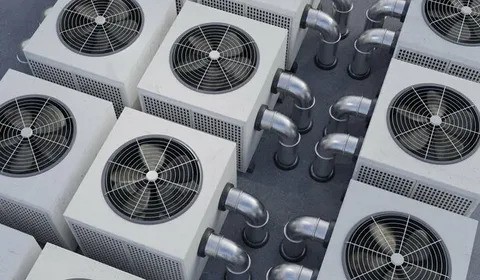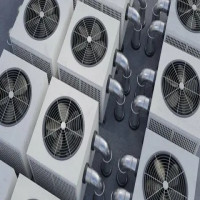10 Warning Signs Your HVAC System Needs Repair

Strong 8k brings an ultra-HD IPTV experience to your living room and your pocket.
A well-functioning HVAC system ensures your home stays warm in winter and cool in summer. But ignoring early-warning signs of trouble can lead to expensive repairs or even system failure. In this comprehensive guide, we’ll explore the 10 top indicators that your HVAC system requires professional attention. We’ll also cover actionable tips, such as when to call a technician versus simple fixes you can do yourself.
Unusual Noises from the HVAC System
Signs to watch for: rattling, banging, screeching, or grinding sounds
Why it matters: These noises often point to loose components, worn bearings, or motor issues—signs you shouldn't ignore.
Action tip: Schedule a professional maintenance check immediately to prevent further damage.
Poor Airflow From Vents
Signs to watch for: weak airflow, inconsistent temperature across rooms
Why it matters: Clogged filters, blocked ducts, or failing blower fans can reduce efficiency and increase energy bills.
Action tip: Replace or clean air filters monthly and clear vents of dust. Call a technician if the problem persists.
Uneven Heating or Cooling
Signs to watch for: hot and cold spots in your home, thermostat discrepancies
Why it matters: This often indicates refrigerant leaks, duct imbalances, or zone system glitches.
Action tip: Test whether adjusting the thermostat setting helps. If not, call an HVAC contractor for diagnosis.
Rising Energy Bills
Signs to watch for: sudden spike in monthly utility costs
Why it matters: A well-maintained HVAC system should operate within a consistent efficiency range. Rising bills often signal system inefficiencies or malfunctions.
Action tip: Schedule a tune-up and professional duct inspection to improve airflow and efficiency.
Frequent Cycling On and Off
Signs to watch for: the HVAC system turns on and off repeatedly in short intervals
Why it matters: Also known as “short cycling,” this issue places extra wear on components and reduces overall lifespan.
Action tip: Regular maintenance may correct it. Persistent cycling signals the need for professional evaluation.
Unpleasant Odors When Running
Signs to watch for: musty, burning, or chemical smells
Why it matters: Musty odors can mean mold in the duct system, while burning scents might indicate electrical problems or overheated components.
Action tip: Turn off the system and call a technician—your comfort and safety depend on it.
Excessive Dust or Humidity
Signs to watch for: unusually dusty home, condensation on windows
Why it matters: Your HVAC handles humidity and air circulation. If it's failing, air quality suffers.
Action tip: Change air filters regularly and consider HVAC cleaning and humidifier/dehumidifier add-ons.
Refrigerant Leaks
Signs to watch for: hissing noise, ice on refrigerant line, reduced cooling capacity
Why it matters: Low refrigerant levels drop cooling efficiency and indicate a system leak.
Action tip: Only licensed HVAC professionals should handle refrigerant—never DIY it.
Frozen Evaporator Coil
Signs to watch for: frost buildup, equipment unable to cool
Why it matters: Frozen coils block air circulation and may signal airflow restrictions or refrigerant issues.
Action tip: Turn off the system to thaw it, then replace filters and schedule an HVAC diagnostic.
System Is Over 10–15 Years Old
Signs to watch for: unit nearing end of typical lifespan
Why it matters: As HVAC units age, efficiency drops, and breakdown risks rise.
Action tip: If repairs exceed 50% of replacement cost, consider upgrading to a modern, energy-efficient model.
DIY Maintenance Tips to Extend Your HVAC Life
• Replace filters regularly – every 1–3 months depending on usage.
• Clear debris from outdoor condenser units, maintain good airflow.
• Keep vents clean and unobstructed.
• Schedule semi-annual professional tune-ups, ideally before summer and winter.
Why Acting Early Pays Off
Catching HVAC issues early increases comfort, air quality, and system longevity. Early fixes cost less and prevent emergency replacements. A professional HVAC technician can pinpoint and resolve issues before damage escalates.
Summary
Ready to maintain a comfortable home? Don’t wait for a breakdown—schedule a professional HVAC inspection today. Preventive care avoids surprises, saves money, and keeps your system running its best.
FAQs
1. How urgent is it to fix an HVAC system that’s short-cycling?
Very urgent. Short cycling causes unnecessary wear and higher utility bills. Schedule professional service promptly.
2. Can I ignore a burning smell from my HVAC system until spring?
No. Burning odors often indicate electrical problems. Turn off the system immediately and call a technician.
3. How often should I replace HVAC filters?
For most homes, replace filters every 1–3 months, or more frequently if you have pets or allergies.
4. Is it normal for my HVAC unit to make noise during startup?
Some hums or clicks during startup are normal. But banging, screeching, or grinding sounds mean it’s time for inspection.
5. What factors determine replacing vs repairing my HVAC system?
Consider the age of the system, cost of repairs vs replacement, and energy efficiency. If repairs cost more than half of a new unit's price and it's over 10 years old, replacing is often wiser.
Note: IndiBlogHub features both user-submitted and editorial content. We do not verify third-party contributions. Read our Disclaimer and Privacy Policyfor details.


